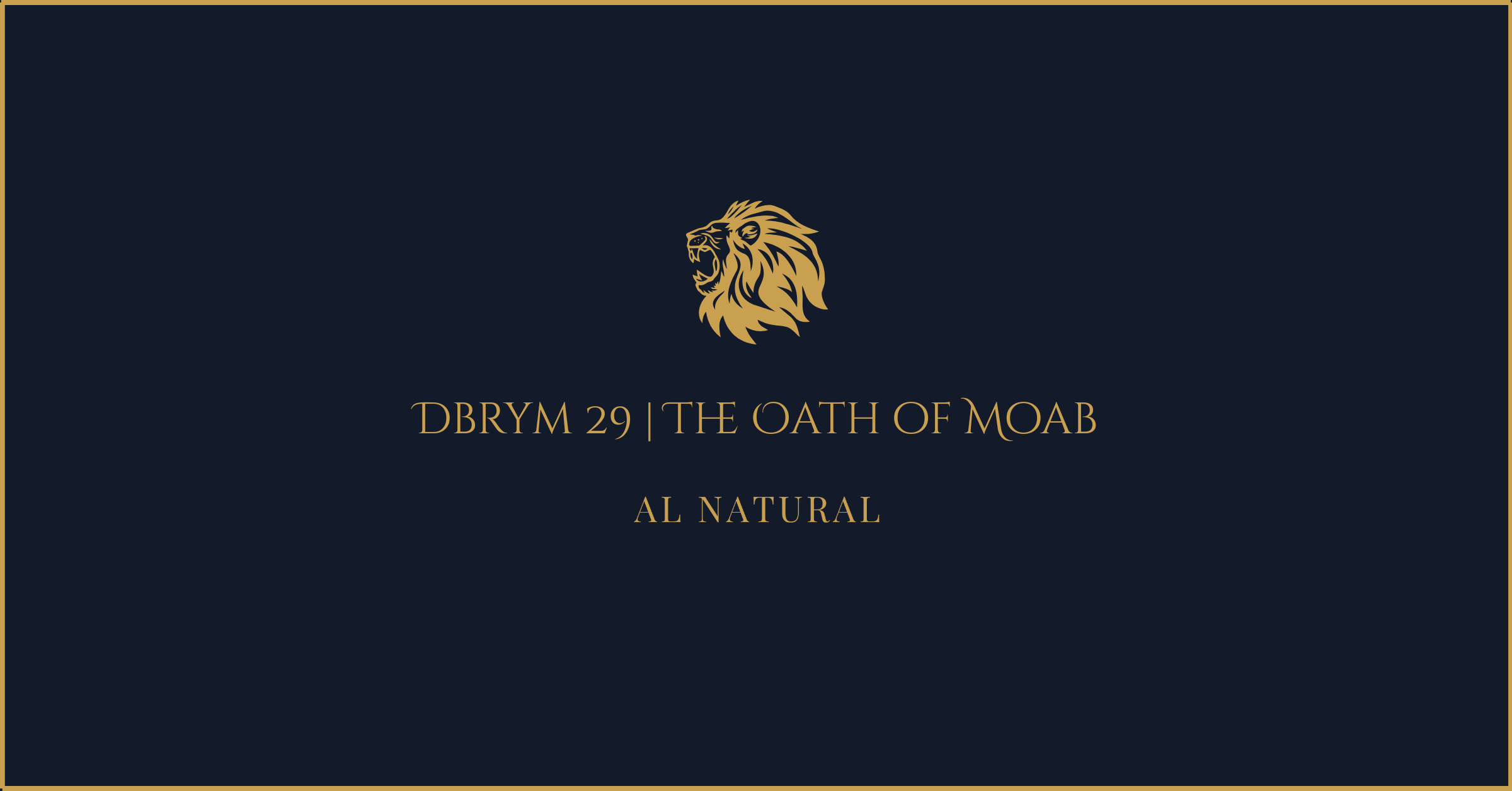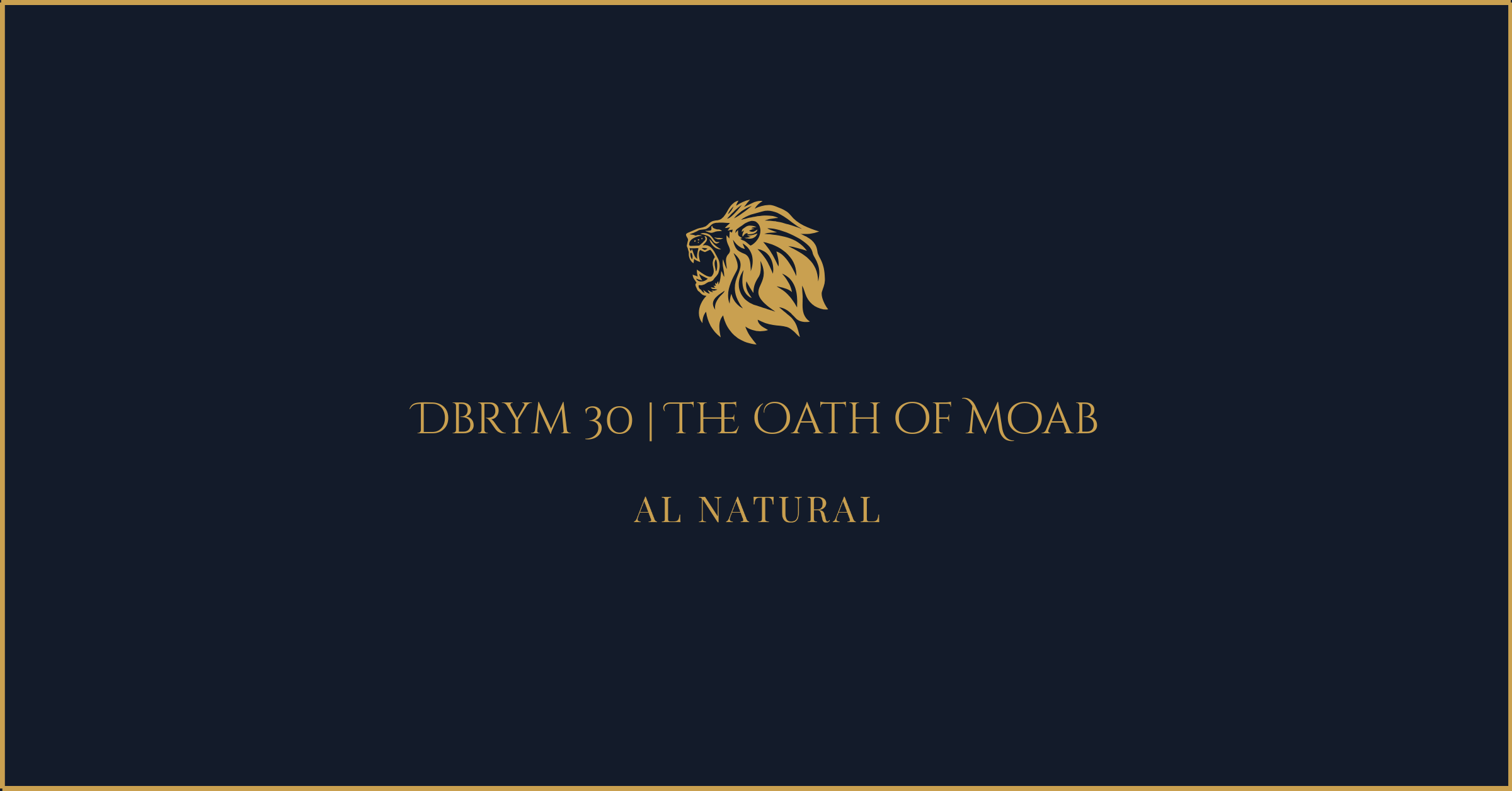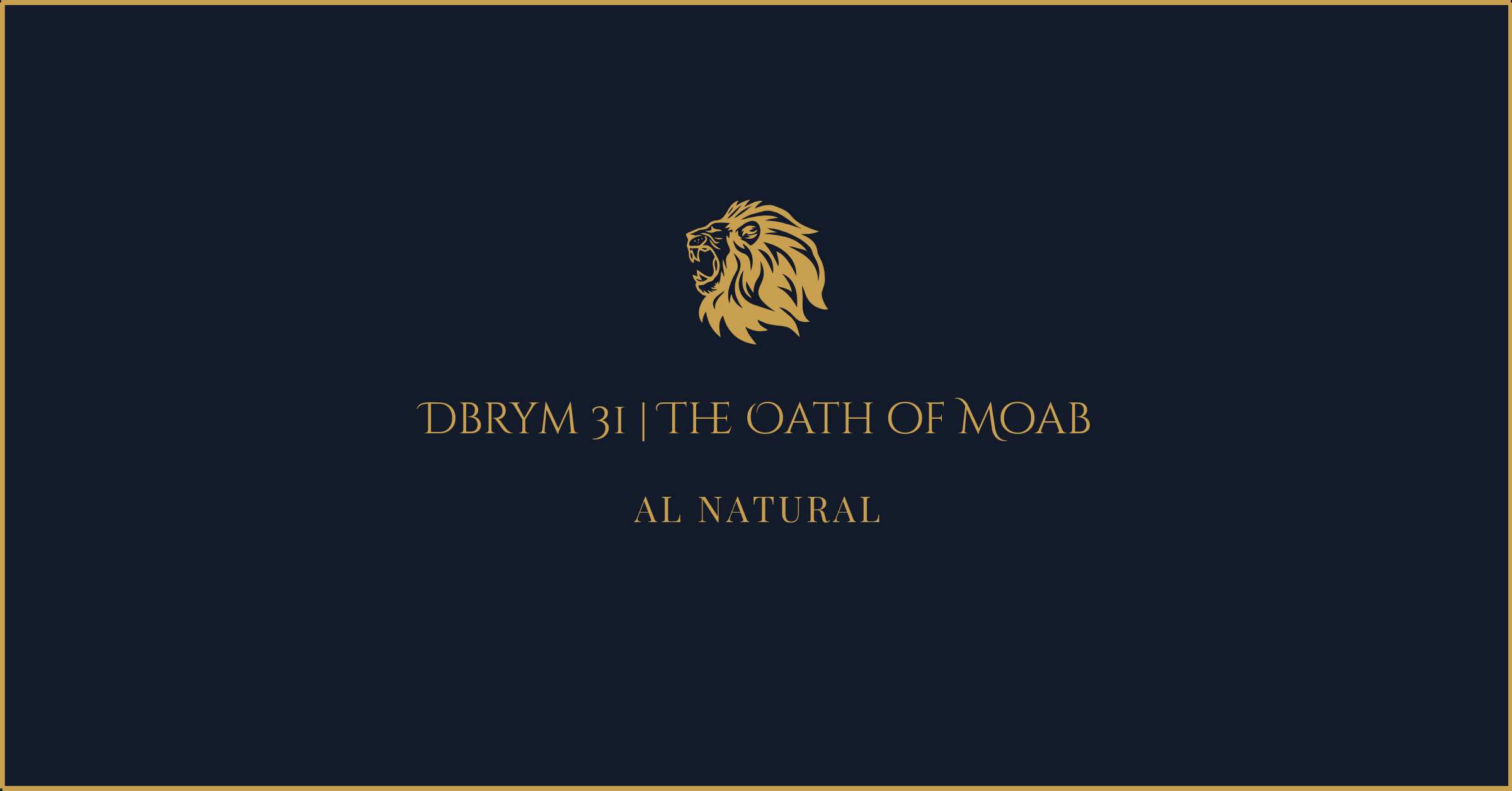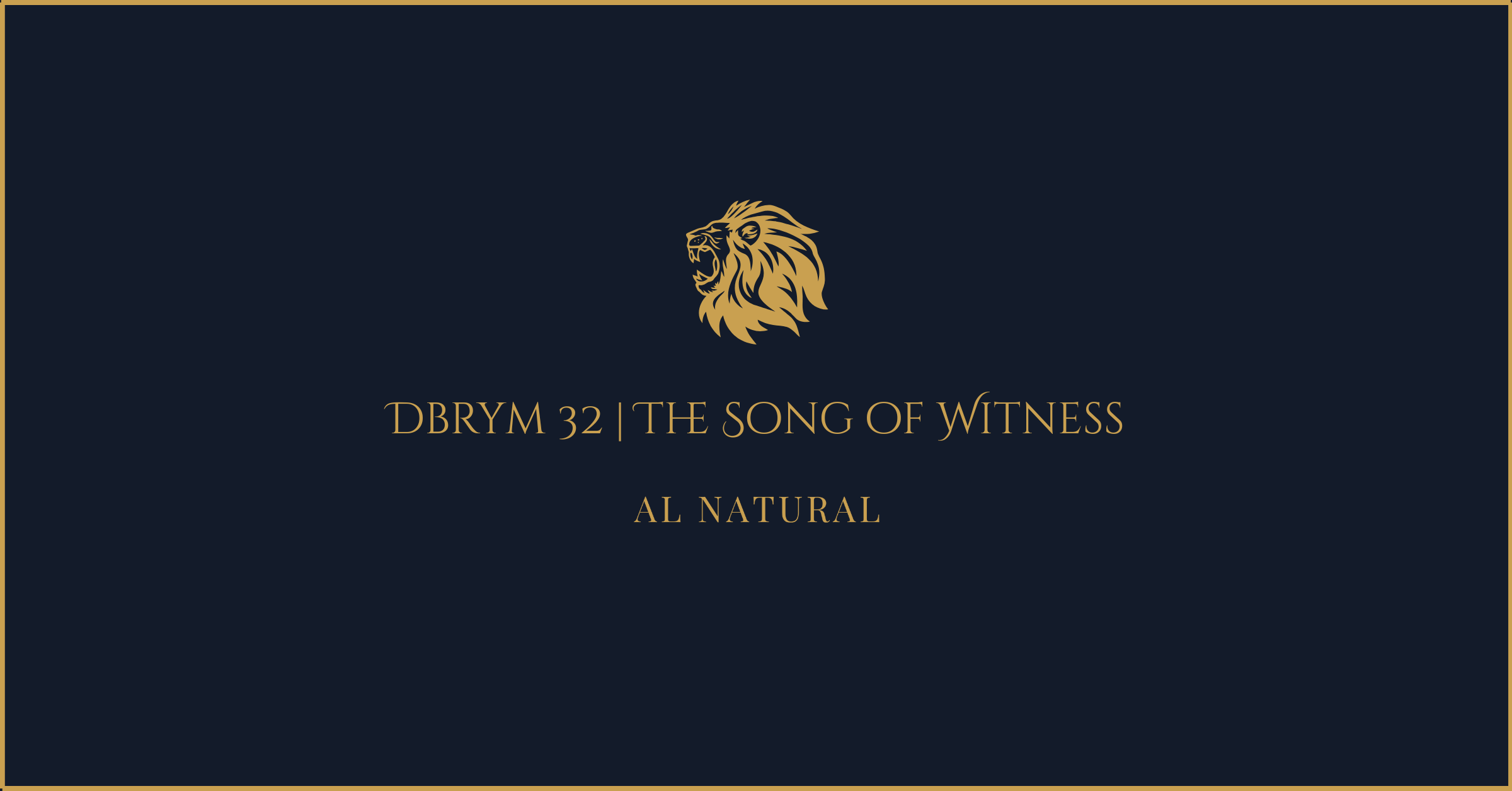Dbrym 29:1-2: The Second Oath AL YHUH Made with Yshral in Land of Moab
Direct Torah Citation
(1) These are the words of the oath, which YHUH commanded Mashah to cut with the children of Yshral in the land of Moab, besides the oath which He cut with them at Horeb. (2) And Mosheh called unto all Yshral, and said unto them, You have seen all that YHUH did before your eyes in the land of Mitsrayim unto Pharaoh, and unto all his servants, and unto all his land;
The Second Oath's Terms Established
Verse 1: Two Distinct Oaths
"These are the words of the oath" - not covenant, not testament, but oath (berit). Legal binding agreement with consequences for violation. The Hebrew "karat berit" means to cut an oath, implying blood severity and irreversible terms.
"Which YHUH commanded Mashah to cut with the children of Yshral" - AL YHUH commands, Mashah executes. This oath specifically targets "children of Yshral" not the mixed multitude. Only those claiming Yshral identity fall under these binding terms.
"In the land of Moab" - Location matters when cutting an oath. This oath gets cut in Moab's territory, witnessed by Moab. The very nation that will later claim to be Yshral watches the real Yshral receive their oath of consequence. Moab stands as witness to terms Moab will later be party to while claiming Yshral's name.
"Besides the oath which He cut with them at Horeb" - Two separate legal documents:
- Horeb oath: The original terms given to Yshral and the mixed multitude (Shmuth 19-24)
- Moab oath: New oath with new terms given only to Yshral before entering the land
This distinction proves false religious claims of "renewed covenant" or "restated law." These are two different oaths with different parties and different terms. Horeb has its own terms. Moab has its own terms. Two complete and separate oaths.
Verse 2: Yshral Witnessed AL YHUH's Ultimate Authority
"And Mosheh called unto all Yshral" - Formal legal assembly. Every member of Yshral must hear these terms. No one can claim ignorance. Mashah ensures complete notification before the oath takes effect.
"You have seen all that YHUH did before your eyes" - Eyewitness testimony establishes AL YHUH's authority to impose this oath. Yshral cannot claim AL YHUH lacks power to enforce consequences. The generation standing at Moab personally witnessed AL YHUH's judgments.
"In the land of Mitsrayim unto Pharaoh, and unto all his servants, and unto all his land" - Three levels of witnessed destruction:
- Pharaoh himself - the god-king brought low
- His servants - the entire government system collapsed
- His land - the nation itself devastated
This establishes precedent: AL YHUH has power to execute total judgment. AL YHUH destroyed Mitsrayim for enslaving and attempting genocide against Yshral. What AL YHUH did to Mitsrayim proves AL YHUH's ability to enforce any oath. The plagues, the complete destruction, the total judgment, all demonstrate AL YHUH's power to fulfill every word of this oath for better or ill.
The appeal to witnessed history removes any excuse. Yshral saw AL YHUH's power demonstrated. Yshral knows AL YHUH can and will execute judgment. This oath gets cut with full knowledge of consequences.
Dbrym 29:3-8: Yshral Witnessed AL YHUH's Power and Provision
Direct Torah Citation
(3) The great temptations which your eyes have seen, the signs, and those great miracles: (4) Yet YHUH has not given you a heart to perceive, and eyes to see, and ears to hear, unto this day. (5) And I have led you forty years in the wilderness: your clothes are not waxen old upon you, and your shoe is not waxen old upon your foot. (6) You have not eaten bread, neither have you drunk wine or strong drink: that you might know that I am YHUH your AL. (7) And when you came unto this place, Sihon the king of Heshbon, and Og the king of Bashan, came out against us unto battle, and we smote them: (8) And we took their land, and gave it for an inheritance unto the Reubenites, and to the Gadites, and to the half tribe of Manasseh.
AL YHUH's Demonstrated Authority
Verse 3: Complete Witness of AL YHUH's Power
"The great temptations which your eyes have seen" - not heard about, not told stories, but personally witnessed. The Hebrew word for temptations (massut) means trials or tests that prove something. Yshral watched AL YHUH test and break Mitsrayim's power.
"The signs, and those great miracles", Two categories of demonstration:
- Signs (otot): Specific markers proving AL YHUH's identity
- Miracles (moftim): Wonders that defy natural law
Every standing member of the Yshralite assembly saw these directly. No faith required. No belief necessary. Eyewitness knowledge establishes AL YHUH's authority to cut this oath.
Verse 4: Withheld Understanding
"Yet YHUH has not given you a heart to perceive, and eyes to see, and ears to hear, unto this day" - AL YHUH controls understanding itself. Despite witnessing everything, Yshral lacked perception until AL YHUH granted it.
This proves false claims that:
- Human wisdom can decode Torah
- Spiritual insight comes from study
- Understanding comes from human effort alone
AL YHUH grants or withholds perception according to His timing. "Unto this day" indicates AL YHUH now grants what was previously withheld. The oath at Moab comes with opened understanding.
Verses 5-6: Supernatural Provision
"I have led you forty years in the wilderness" - AL YHUH speaks directly. Not through Mashah here, but first person testimony.
"Your clothes are not waxen old upon you, and your shoe is not waxen old upon your foot" - Forty years without wear. Natural law suspended. No textile production, no trade, no economy needed. AL YHUH provided outside all human systems.
"You have not eaten bread, neither have you drunk wine or strong drink" - Bread requires human processing, wine requires fermentation. Both represent human modification of AL YHUH's provision. Yshral ate manna directly from AL YHUH, drank water from the rock. No human intervention between AL YHUH's provision and Yshral's consumption.
"That you might know that I am YHUH your AL", The purpose: establishing AL YHUH as sole provider. Not through man-made systems, not through natural processes, but direct supernatural provision. This knowledge forms the basis for the oath , Yshral knows AL YHUH can sustain or withdraw sustenance at will.
Verses 7-8: Military Victory and Land Distribution
"Sihon the king of Heshbon, and Og the king of Bashan, came out against us", These kings initiated conflict. Yshral did not seek war. The kings "came out against" - language establishing defensive response.
"And we smote them" - Complete victory. Not negotiated peace, not partial victory. Total defeat of those who opposed Yshral's passage.
"We took their land, and gave it for an inheritance", Lawful transfer through conquest. The land given to:
- Reubenites
- Gadites
- Half tribe of Manasseh
This distribution happens before crossing the Yarden, establishing that some of Yshral receives inheritance outside the promised land proper. These tribes remain bound to the oath despite territorial distinction.
This marks the first mention of Gad receiving territorial inheritance, which becomes significant in Dbrym 33:20-21: "And of Gad he said, empowered be he that enlarges Gad: he dwells as a lion, and tears the arm with the crown of the head. And he provided the first part for himself, because there, in a portion of the lawgiver, was he seated." This "portion of the lawgiver" connects to where Mosheh was buried in Gad's territory (Dbrym 34:5-6), establishing Gad as the protective barrier for Yshral against corruption. The lawgiver's authority transfers through the land itself, not through human succession.
The entire passage establishes AL YHUH's complete authority: power over nature, provision outside human systems, military victory, and land distribution.
Every witness at Moab knows AL YHUH can enforce this oath.
Dbrym 29:9-13 : The Oath Assembly and Yshral's Binding
Direct Torah Citation
(9) Keep therefore the words of this oath, and do them, that you may prosper in all that you do. (10) You stand this day all of you before YHUH your AL; your captains of your tribes, your elders, and your officers, with all the men of Yshral, (11) Your little ones, your wives, and your stranger that is in your camp, from the hewer of your wood unto the drawer of your water: (12) That you should enter into oath with YHUH your AL, and into his sworn agreement, which YHUH your AL makes with you this day: (13) That he may establish you today for a people unto himself, and that he may be unto you an AL, as he has said unto you, and as he has sworn unto your fathers, to Abraham, to Ytsaq, and to Yaiqob.
Complete Assembly of Yshral for Oath Ratification
Verse 9: Conditional Prosperity
"Keep therefore the words of this oath, and do them" - Two requirements: keep (shamar - guard/preserve) and do (asah - perform/execute). Not just knowledge, not just intention, but active guarding and performing.
"That you may prosper in all that you do" - Prosperity directly tied to oath keeping. Not empowered from belief, not favor from faith, but prosperity from doing what the oath requires.
The Hebrew word for prosper (sakal) means to act wisely with success. Keeping the oath equals wise action equals prosperity.
Verse 10: Leadership Structure Present
"You stand this day all of you before YHUH your AL" - Formal oath assembly before AL YHUH Himself, not before Mashah alone.
Everyone in attendance stands as direct party to this oath.
The hierarchy listed:
- "Your captains of your tribes" - Military leadership
- "Your elders" - Judicial authority
- "Your officers" - Administrative execution
- "All the men of Yshral" - Every male citizen
No one excluded from leadership. No claiming "the leaders signed, not me." Every level of authority present and bound.
Verse 11: Complete Social Inclusion
"Your little ones, your wives" - Children and women included as oath witnesses. Future generations cannot claim ignorance. Wives cannot say they were excluded.
"Your stranger that is in your camp" - The ger (sojourner) dwelling with Yshral falls under oath terms. Not made Yshral, but bound by Yshral's oath while dwelling among them.
"From the hewer of your wood unto the drawer of your water" - Every economic class included. From manual laborers to water carriers, no social status exempts anyone from oath obligations. This phrase encompasses all service roles - no one too low to be excluded, no work too menial to escape oath binding.
Verse 12: Formal Entry into Oath
"That you should enter into oath with YHUH your AL" - The Hebrew "abar" means to cross over or pass through. Yshral crosses into binding, like crossing a river with no return.
"And into his sworn agreement" - The Hebrew "alah" means sworn curse or oath of execration. This is not just positive oath but includes self-invoked curses for violation. Yshral agrees to the curses of Dbrym 28 applying if they break this oath.
"Which YHUH your AL makes with you this day" - Present tense action. The oath takes effect immediately, not at some future point. "This day" appears repeatedly, emphasizing immediate force.
Verse 13: Purpose of Establishment
"That he may establish you today for a people unto himself" - Yshral's identity as AL YHUH's people depends on this oath. Break the oath, lose the identity. No oath means no claim to be His people Yshral.
"That he may be unto you an AL" - Reciprocal relationship. AL YHUH becomes their AL only through this oath relationship. Others may acknowledge AL YHUH as Creator, but only oath-keepers can claim Him as "our AL."
"As He has said unto you, and as He has sworn unto your fathers"
Two witnesses:
- What AL YHUH said to current generation
- What AL YHUH swore to Abraham, Ytsaq, and Yaiqob
"To Abraham, to Ytsaq, and to Yaiqob" - Named individually, not collectively. Each patriarch received personal oath from AL YHUH. This current oath at Moab continues that direct line, not through man's interpretation but through AL YHUH's direct word.
Dbrym 29:14-21: Multi-Generational Binding of Oath and the Root of Wormwood
Direct Torah Citation
(14) Neither with you only do I make this oath and this sworn agreement, (15) But with him that stands here with us this day before YHUH our AL, and also with him that is not here with us this day: (16) (For you know how we have dwelt in the land of Mitsrayim; and how we came through the nations which you passed by; (17) And you have seen their abominations, and their idols, wood and stone, silver and gold, which were among them:) (18) Lest there should be among you man, or woman, or family, or tribe, whose heart turns away this day from YHUH our AL, to go and serve the mighty ones of these nations; lest there should be among you a root that bears gall and wormwood; (19) And it come to pass, when he hears the words of this curse, that he bless himself in his heart, saying, I shall have peace, though I walk in the imagination of my heart, to add drunkenness to thirst: (20) YHUH will not spare him, but then the anger of YHUH and his jealousy shall smoke against that man, and all the curses that are written in this book shall lie upon him, and YHUH shall blot out his name from under heaven. (21) And YHUH shall separate him unto evil out of all the tribes of Yshral, according to all the curses of the oath that are written in this book of the law:
Future Yshralite Generations Bound to this Oath and Warning Against Internal Betrayal
Verses 14-15: Binding Beyond Present Yshralite Assembly
"Neither with you only do I make this oath" - AL YHUH explicitly extends this oath beyond those physically present. No future generation can claim exemption.
"But with him that stands here with us this day before YHUH our AL, and also with him that is not here with us this day" - Two groups bound:
- Present generation standing at Moab
- All future generations claiming Yshral identity
This proves false every claim that "times have changed" or "that was for them, not us." Every generation born into Yshral falls under this oath automatically. No renewal needed. No reconfirmation required. Born into Yshral means born under oath. If one has Yshralite blood which they most likely won't know, they are bound to this oaths 'empowering' and 'curse'.
Verses 16-17: Yshral Witnessed the Terrible Abominations of the Nations they Dispossessed
"For you know how we have dwelt in the land of Mitsrayim" - Yshral lived among idolatry for centuries. Not visitors but dwellers who saw daily practice of false worship.
"And how we came through the nations which you passed by" - During wilderness journey, Yshral passed through territories of Edom, Moab, Ammon, and others. Each nation displayed their mighty ones.
"You have seen their abominations, and their idols", Yshral was a direct witness of false systems.
Four materials listed:
- Wood - carved images, poles, crosses
- Stone - altars, pillars, sacred stones
- Silver - currency worship, trade gods
- Gold - wealth deification, sun worship
Yshral saw every form of idolatry and knows exactly what not to do. No ignorance defense exists.
Verse 18: The Root of Gall and Wormwood Warning
"Lest there should be among you", The threat comes from within, not external invasion. AL YHUH warns of internal corruption.
"Man, or woman, or family, or tribe" - Corruption can begin at any level:
- Individual (man or woman)
- Household (family)
- Bloodline (tribe)
"Whose heart turns away this day from YHUH our AL", Present tense turning. Not gradual drift but decisive turn away from AL YHUH.
"To go and serve the mighty ones of these nations" - Specific action: serving the witnessed false systems. Not creating new idolatry but adopting existing ones from the nations.
"A root that bears gall and wormwood", The Hebrew word for root (shoresh), this word in its English phonetics and Hebrew meaning "Root, Ruth, Roth" becomes critical in Dbrym 32:32 where this same root becomes the "vine of Sedom."
The phonetic connection reveals:
- Root (shoresh) = Ruth (the Moabite woman)
- Ruth = Roth (as in Rothschild, literally "Ruth's child" or "Root's child")
- The root of wormwood = Ruth (book from false prophets added to Torah)
AL YHUH embedded the identification in the language itself. Dbrym 32:32 explicitly calls this same element "their vine is of the vine of Sedom, and of the fields of Amorah; their grapes are grapes of gall, their clusters are bitter." The root bearing gall and wormwood (verse 18) grows into the vine of Sedom (32:32) - the Moabite infiltration through Ruth's lineage, manifesting today as Rothschild ("Ruth's child") control. AL YHUH named the corruption before it appeared, encoding it in the very words of warning.
Verse 19: Self-Deception Formula, Root of Gall and Wormwood
"When he hears the words of this curse" - The betrayer knows the oath terms. Not ignorant but informed rebellion.
"He empowers himself in his heart" - Self-deception, not external deception. The betrayer convinces himself despite knowing better. Feels emboldened.
"I shall have peace, though I walk in the imagination of my heart" - The core lie: peace without keeping the oath of AL YHUH he swore. Following personal imagination while claiming AL YHUH's peace. This matches exactly the false religions claiming salvation while rejecting Torah.
"To add drunkenness to thirst" - Making bad worse. Thirst represents natural consequence of turning away. Drunkenness represents self-induced delusion added to existing judgment. The betrayer compounds judgment through willful blindness.
Verse 20: No Forgiveness for Informed Betrayal of AL YHUH
"YHUH will not spare him" - Absolute statement. No mercy for those who know the oath and choose to turn away while claiming peace.
"The anger of YHUH and his jealousy shall smoke against that man" - Personal, targeted wrath. Not general misfortune but specific divine anger. Smoke implies visible, consuming fire of judgment.
"All the curses that are written in this book shall lie upon him" - Every single curse from Dbrym 28 activated. Not partial judgment but complete application of sworn consequences.
"YHUH shall blot out his name from under heaven", Complete erasure from record. No memory, no legacy, no restoration. Name removal means covenant removal - cannot claim Yshral identity.
Verse 21: They are Separated for Destruction
"YHUH shall separate him unto evil out of all the tribes of Yshral" - Marked for specific destruction. Separated from protection but still identified as example of judgment.
"According to all the curses of the oath", Judgment follows written terms exactly. No arbitrary punishment but documented consequences. The "book of the law" contains the sentence, Torah itself witnesses against the betrayer.
Dbrym 29:22-29: Future Witness and Hidden Things
Direct Torah Citation
(22) So that the generation to come of your children that shall rise up after you, and the stranger that shall come from a far land, shall say, when they see the plagues of that land, and the sicknesses which YHUH has laid upon it; (23) And that the whole land thereof is brimstone, and salt, and burning, that it is not sown, nor bears, nor any grass grows therein, like the overthrow of Sedom, and Amorah, Admah, and Tseboyim, which YHUH overthrew in his anger, and in his wrath: (24) Even all nations shall say, Wherefore has YHUH done thus unto this land? what means the heat of this great anger? (25) Then men shall say, Because they have forsaken the oath of YHUH AL of their fathers, which he made with them when he brought them forth out of the land of Mitsrayim: (26) For they went and served other mighty ones, and worshipped them, mighty ones whom they knew not, and whom he had not given unto them: (27) And the anger of YHUH was kindled against this land, to bring upon it all the curses that are written in this book: (28) And YHUH rooted them out of their land in anger, and in wrath, and in great indignation, and cast them into another land, as it is this day. (29) The secret things belong unto YHUH our AL: but those things which are revealed belong unto us and to our children for ever, that we may do all the words of this law.
The Nations Will Witness Yshral's Destruction
Verses 22-23: Future Generations of Yshral See Destruction
"The generation to come of your children that shall rise up after you" - Future Yshralites will witness their own land's destruction. Not metaphor but physical devastation their descendants will see.
"And the stranger that shall come from a far land" - Foreign visitors will observe the same destruction. International witness to Yshral's judgment.
"When they see the plagues of that land, and the sicknesses which YHUH has laid upon it" - Visible, physical evidence:
- Plagues (makot) - same word used for Mitsrayim's plagues
- Sicknesses (tachaluim) - diseases AL YHUH specifically places
"The whole land thereof is brimstone, and salt, and burning" - Complete desolation matching Sedom's destruction:
- Brimstone - sulfur from heaven
- Salt - permanent barrenness
- Burning - ongoing devastation
"Like the overthrow of Sedom, and Amorah, Admah, and Tseboyim" - Four cities destroyed for wickedness. Yshral's land will match their fate exactly. This connects directly to the "vine of Sedom" in Dbrym 32:32. Yshral becomes what Sedom was.
Verses 24-25: The Question and Answer
"Even all nations shall say, Wherefore has YHUH done thus unto this land?" - Universal recognition that AL YHUH caused this destruction. Not natural disaster, not foreign conquest, but AL YHUH's direct judgment.
"Then men shall say, Because they have forsaken the oath of YHUH AL of their fathers" - The answer given publicly. Not hidden or mysterious. The nations correctly identify oath-breaking as the cause. "Which he made with them when he brought them forth out of the land of Mitsrayim", specifically the oath at Sinai/Horeb, showing both oaths were violated.
The depth of Yshral's betrayal becomes clear when considering the Ten Words given at Horeb (Shemot 20:2-17):
- Words 1-4: Know who AL YHUH is and respect Him alone
- Word 4: Keep His appointed times (not man's calendar)
- Words 5-10: Basic human decency - honor parents, don't murder, don't commit adultery, don't steal, don't lie, don't covet
These are not complex requirements. AL YHUH asked for recognition of who He is, keeping His calendar, and basic decent behavior toward others. Yet Yshral couldn't even maintain these fundamental standards. When people cannot keep "don't murder" and "don't steal," when they replace AL YHUH's calendar with foreign systems, when they bow to other mighty ones after witnessing the plagues of Mitsrayim, this shows complete abandonment of even the most basic oath terms.
This explains why no restoration comes through human effort. The betrayal runs so deep that Yshral violated not just complex ceremonial law but the simplest moral foundations. This warranted every curse listed in Dbrym 28, with no provision for human-initiated return.
Verse 26: Serving Unprescribed Mighty Ones
"For they went and served other mighty ones" - Active choice to serve others. Not passive drift but intentional turning.
"Mighty ones whom they knew not" - Unknown to their fathers, not part of Torah instruction. This includes every deity not named by AL YHUH.
"Whom he had not given unto them", AL YHUH never prescribed these mighty ones.
This eliminates:
- Every god from surrounding nations
- Every religious system not in Torah
- Every name for deity AL YHUH didn't provide
Verses 27-28: Written Curses Activated
"To bring upon it all the curses that are written in this book", Every curse from Dbrym 28 applied. Written documentation enforced exactly as stated.
"YHUH rooted them out of their land" - Like plants pulled up by roots. Complete removal from the land promised to Abraham,Ytsaq, and Yaiqob.
"Cast them into another land, as it is this day", The scattering remains active. "As it is this day" means whenever this is read, the judgment continues until conditions change.
Yshral remains scattered, landless, under foreign rule.
Verse 29: The Boundary of Revelation
"The secret things belong unto YHUH our AL" - AL YHUH keeps some knowledge hidden.
These include:
- Timing of restoration
- Hidden location of scattered Yshral
- Future events not revealed in Torah
"But those things which are revealed belong unto us and to our children for ever", Torah contains complete teaching to perform it. Everything needed for right action stands revealed. No hidden oral law. No secret knowledge required. No mysteries to decode.
"That we may do all the words of this law", Purpose of revelation: enabling hearing and doing of Torah. Not philosophical understanding, not mystical enlightenment, but practical doing of Torah's words.
This verse proves false every claim to secret knowledge:
- Rabbinic oral law claims
- Kabbalistic mysteries
- Christian "spiritual" meanings
- Islamic supplementary revelation
AL YHUH revealed what needs doing. Everything else remains His business.
Dbrym 29: The Oath of Moab Chapter Summary
The Moab Oath's Essential Witness
Dbrym 29 establishes the second oath, distinct from Horeb, binding only Yshral and their descendants forever. This oath at Moab documents what will happen when Yshral forsakes Torah, not if but when, as AL YHUH knows the betrayal is coming.
Critical revelations:
Two Separate Oaths - Horeb for the mixed multitude (Shmuth 12:38, 20:1-17), Moab oath for Yshral alone. This distinction matters: only those claiming Yshral identity fall under the terms of the Oath made with AL YHUH in the plains of Moab.
The Root of Wormwood - AL YHUH warns of internal corruption bearing "gall and wormwood" (verse 18). The Hebrew root (shoresh) in english is Root, or Ruth or Roth, revealing the Moabite infiltration that becomes the "vine of Sedom" in Dbrym 32:32. Ruth = Root = Roth, as in Rothschild ("Ruth's child"), the corrupted vine AL YHUH named before it appeared in the Torah.
Multi-Generational Binding - "Him that is not here with us this day" (verse 15) remains bound. No future generation of Yshral can claim exemption. Born into Yshral means born under oath.
No Forgiveness for Informed Betrayal - "YHUH will not spare him" (verse 20) who knows the oath yet claims peace while walking in imagination. Name blotted out, separated for evil, every curse activated.
The Nations Will Know Why - When asked why AL YHUH destroyed His people's land, the answer comes clearly: "Because they have forsaken the oath" (verse 25). The scattered state "as it is this day" (verse 28) continues until AL YHUH acts.
Complete Revelation - "The secret things belong unto YHUH our AL: but those things which are revealed belong unto us" (verse 29). Torah stands complete and sufficient. No oral law, no mysteries, no additional revelation needed for obedience.
The Bridge to Hope
While Dbrym 29 documents certain judgment for oath-breaking, it ends with a boundary that points forward. The revealed things enable hearing and doing "that we may do all the words of this law" - implying possibility remains. The secret things belonging to AL YHUH include timing and method of restoration.
The next Torah Witness Scroll is Dbrym 30, where AL YHUH reveals the only path back: not through human effort, temple rebuilding, or religious innovation, but through AL YHUH Himself acting to restore those who return to Torah with all their heart and soul.
The same AL YHUH who scattered will gather. The same power that cursed will circumcise hearts. The oath-breaking documented in Dbrym 29 is not the end.
.png)

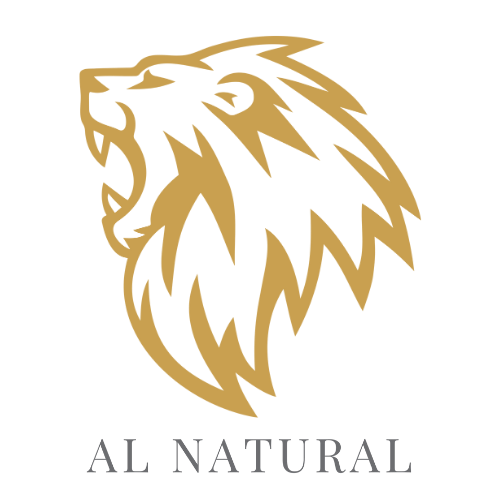
.png)
.png)

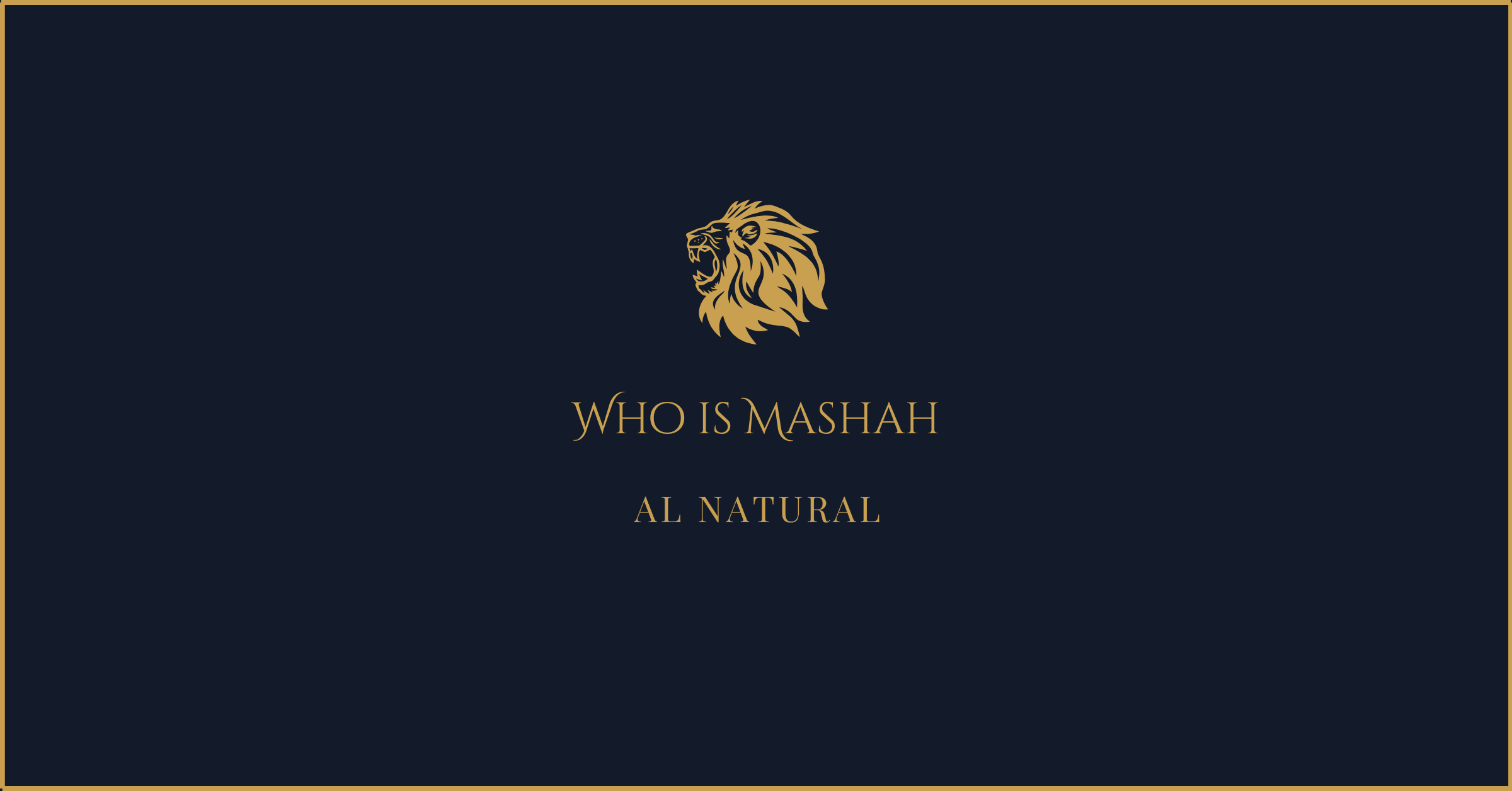

.png)


